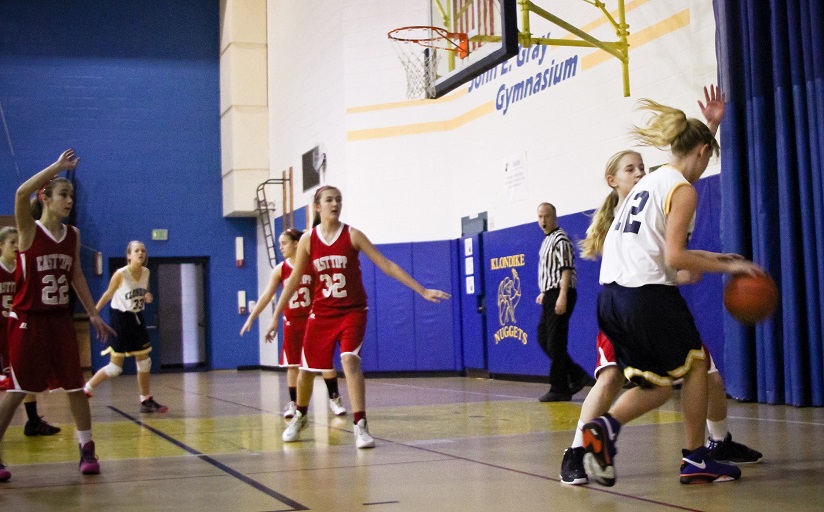Important tips for Parents of Youth & Middle School Basketball Players

Almost every parent realizes how beneficial it is for their children to participate in shot trainer basketball. On the other hand, parents often question if they are doing all they can to support their children’s basketball activities.
Is there a model for good youth basketball parenthood?
Follow these five suggestions to bring out the most in your young athlete. All children, at any level and in basketball, may benefit from these recommendations.
1. Let Your Kids Follow Their Passions
Often, parents have experienced first-hand the importance of basketball. You may have participated in basketball as a child or a fan of professional basketball or team. You’d want your kid to go down the same path as you did. And it’s not uncommon for parents to desire to revive their passion for basketball by instructing their children on how to participate.
It’s crucial to note, though, that your children may have a wide range of interests and abilities. Even if you were a star athlete in basketball, your children might not have the same abilities. Furthermore, you should never compel your children to go a route that they do not believe is suitable for them.
Your best chance is to introduce your young athletes to basketball from an early age. They’ll rapidly discover which ones are the greatest areas for their needs and preferences. Most likely, your children will opt to concentrate their efforts on improving these areas.
2. Model Positive Behaviors
Young people’s basketball may be quite competitive, even in their early phases. Every parent wants their children to achieve success. Furthermore, emotions might run high.
It is to you that your children will look for direction on how to navigate the world of basketball. What do you want them to see when they arrive?
Concentrate on the good aspects of the game and teach your children to respect their coaches, fellow players, and parents. Every basketball experience, even the most difficult defeats, may be turned into something positive. Instruct your children to learn from their errors rather than be disheartened by them. Understand and adhere to the rules and regulations of your league or club when you have the opportunity; volunteer to demonstrate to children the importance of helping others.
Using all of these strategies will assist your children in developing a favorable attitude toward basketball. They will be able to take it with them throughout their playing years and throughout the rest of their lives.
3. Encourage Your Kids to Respect Coaches
In many cases, a child basketball shot trainer will put in a lot of time to help shape the futures of their players. To help the players, they may have to sacrifice time with their families. With their expertise, they can assist each child in their development.
Even so, every coach has a flaw or two. It’s possible that they, too, will make blunders.
You should instil respect for coaches in your children from an early age. Ensure that your athletes are well-versed in the importance of paying attention to their coach’s directions. Also, remind kids to respect their coach’s choices, even if they disagree. Assist your children in contacting their coaches for assistance or assistance with questions they may have.
4. Teach Your Kids to Be Good Team Players
Being a team member may be beneficial to anybody, regardless of their age. He or she will learn the art of teamwork. As a result, they’ll be better able to interact with children from varied backgrounds and abilities.
When tension or animosity is in the air, the game is less enjoyable for everyone. Avoid teaching your children to disparage other athletes or team members. Remind them to maintain a pleasant demeanor whether they win or lose. Remind them that a kind word may make a significant difference in someone’s life.
Always put collaboration and sportsmanship ahead of victory and individual accolades. Consistently emphasize to your children the importance of building healthy connections and having a good outlook on life.
5. Help Your Kids Manage Their Emotions
It’s common for kids to experience a wide variety of emotions when playing basketball. A youngster may experience the joy of victory and the heartbreak of defeat in the course of a single season. Anxiety or resentment over perceived faults might affect certain youngsters. If your kid participates in a competitive team or program, you may experience even more of these typical emotions.
It is your responsibility as a parent to encourage your children to express their emotions openly and honestly. Be a good ear to listen to. Take the time to listen to their concerns and assist them in redirecting their negative sentiments.
Some children may benefit from avoiding exhibiting unpleasant emotions during basketball matches. Taking three deep breaths or learning to count to five may have a huge impact. To keep a young athlete engaged and present throughout practice and games, mind-body routines like these might be helpful.
Conclusion:
Parental guidance is a child’s first and most important source of knowledge and instruction. This holds true in many aspects of life, including children’s basketball. Often, parents concentrate on achieving lofty goals for their children, such as helping them make a select team or get a college scholarship. Even while these are admirable goals, it’s important not to let them get in the way of the importance of learning about a basketball shot returner. Children can learn the value of physical activity and cooperation through participation in basketball. They may learn how to create objectives and work consistently toward them. It is possible to teach them how to deal with their own feelings.
